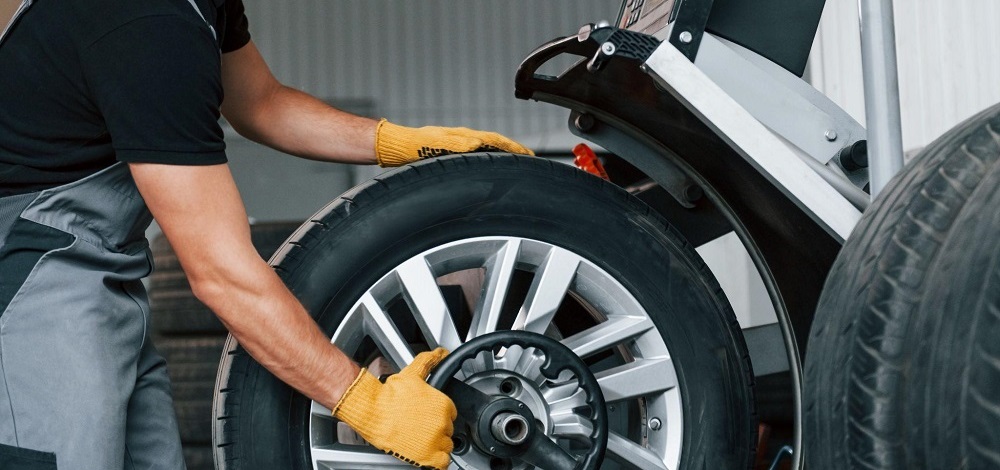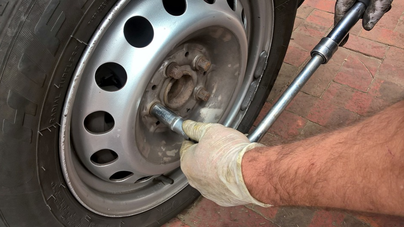Keep Rolling Properly: GMC Tires Service by Morris Tires
Keep Rolling Properly: GMC Tires Service by Morris Tires
Blog Article
Tire Service: The Impact of Climate Condition
When it comes to making certain ideal performance and security when driving, understanding the impact of weather on tire service is vital. From scorching warm to icy roads, each climate aspect can substantially influence tire performance and general driving experience. By delving into the effects of differing climate conditions on tires, drivers can get beneficial understandings that may improve their car's performance and long life. In this discussion, we will check out the elaborate partnership between climate condition and tire service, losing light on the significance of weather-specific tire upkeep methods and factors to consider.
Warmth and Tire Efficiency
When exposed to high temperature levels, tires experience modifications in performance that can dramatically influence car safety and handling. The warm produced from long term driving or warm climate conditions creates the tire rubber to soften, leading to reduced tread life and raised wear.

Cold Weather Condition Effects
Cold weather conditions can have a substantial effect on tire performance and safety. As temperature levels decrease, tire rubber can set, resulting in lowered traction on icy or snow-covered roads. In winter, tires may additionally lose air stress much more rapidly, which can affect dealing with and gas performance. Furthermore, cold temperatures can trigger tire sidewalls to tense, increasing the risk of damages from pits or other road risks.
To minimize the results of chilly weather on tires, it is vital to routinely check tire stress and inflate them to the manufacturer's advised degrees. Making use of winter or all-season tires designed for winter conditions can additionally boost grip and grip on icy or snowy roadways. Appropriate tire upkeep, consisting of regular inspections for wear and damage, comes to be a lot more vital during cooler months to make sure optimum efficiency and security.
Rainy Issues Influence
During wet problems, tire efficiency and security can be dramatically affected by the damp roadway surfaces and decreased presence. The step pattern of tires plays an essential function in preserving traction on wet roads. Tires with damaged footsteps are extra vulnerable to hydroplaning, where a layer of water accumulates between the tire and the road surface area, causing loss of traction. To battle this, drivers must regularly inspect their tires for ample walk deepness and take into consideration buying tires especially developed for wet problems.
In addition, stormy climate can additionally decrease presence, making it testing for drivers to see the roadway ahead clearly (GMC Tire Service). you could try this out In such problems, it is necessary to change driving rates accordingly and preserve a safe adhering to range to allow for abrupt stops. Effectively inflated tires can additionally help in keeping control on wet roadways by offering much better handling and grasp
Snow and Tire Security
Snow-covered roadways position one-of-a-kind challenges for vehicle drivers, emphasizing the importance of correct tire option and upkeep. When driving in snowy conditions, having the ideal tires can make a substantial difference in safety and efficiency. Winter season tires are created with special rubber compounds and walk patterns to supply better grip on snow and ice compared to all-season tires. The much deeper treads and sipes of winter season tires aid grip the road better, minimizing the danger of gliding and sliding.

It is important to adhere to supplier guidelines when setting up and making use of tire chains to stop damage to the tires and vehicle. By selecting the ideal tires, maintaining proper inflation, and considering additional grip aids like tire chains, drivers can improve their safety when browsing snow-covered roads.
Weather-Related Tire Maintenance
When confronted with various climate condition, correct tire upkeep comes to be an essential facet of lorry security and efficiency. Weather-related tire maintenance incorporates a series of practices targeted at making sure optimum tire function and durability in different weather condition situations. One key element of weather-related tire upkeep is view it now tire stress law. Fluctuating temperatures can trigger tire pressure to differ, affecting traction and fuel efficiency. On a regular basis changing and examining tire stress according to supplier suggestions is necessary for secure driving in changing weather conditions. In addition, tire tread depth plays a significant role in dealing with various weather condition aspects. Tires with appropriate walk depth provide far better grasp on damp or icy roads, reducing the threat of hydroplaning or skidding. When tread wear gets to a specific depth is crucial for maintaining traction and stability in adverse climate, evaluating tire step consistently and replacing tires. By focusing on weather-related tire upkeep, motorists can boost security, improve vehicle performance, and lengthen the life-span of their tires.
Conclusion
In verdict, weather have a considerable influence on tire efficiency and safety and security. From warm influencing tire pressure and put on to winter minimizing traction, it is important to take into consideration the climate when preserving and using tires. Rainy problems can decrease hold and result in hydroplaning, while snow can increase the risk of accidents if pop over to this site tires are not properly geared up. Weather-related tire maintenance is critical in making certain optimal efficiency and security when driving.
In this discussion, we will explore the intricate relationship between weather condition conditions and tire service, shedding light on the value of weather-specific tire upkeep practices and factors to consider.

Report this page